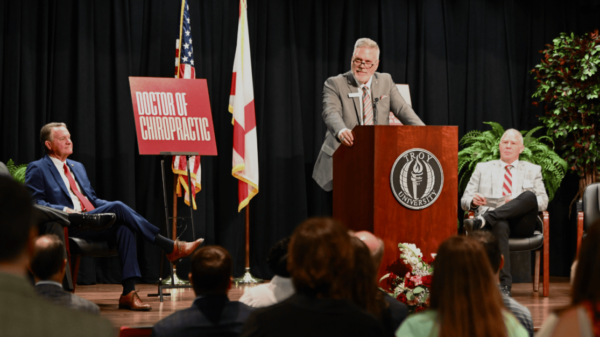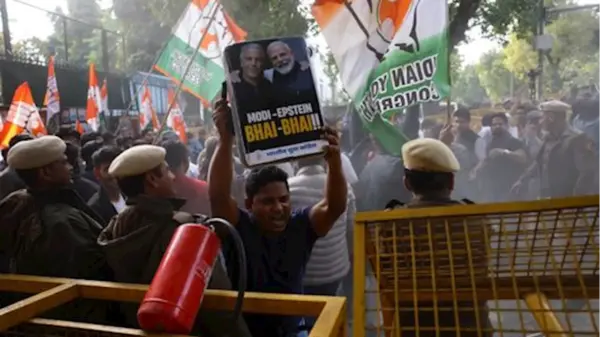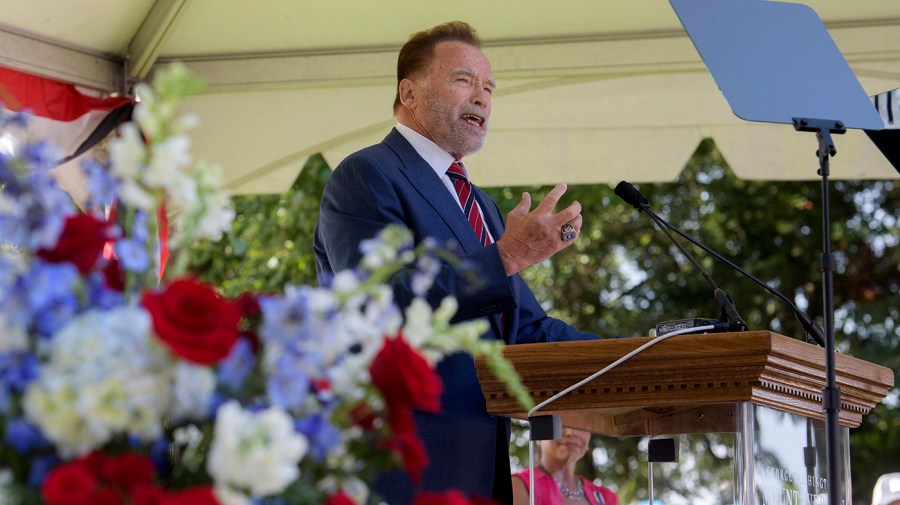Arnold Schwarzenegger has re-entered the political arena, advocating against partisan redistricting in California. The former governor is urging voters to “terminate gerrymandering,” joining forces with prominent figures like former GOP Speaker Kevin McCarthy and investor Charlie Munger. Together, they are pushing back against a redistricting plan that could potentially secure five additional Democratic seats in the House by bypassing the state’s independent redistricting commission.
Schwarzenegger, who championed the establishment of this independent commission during his governorship, views the current redistricting effort as a direct threat to his legacy. Political analyst Dan Schnur, a former Republican strategist and professor at the University of California, Berkeley, noted, “He sees it as under threat.” Current California Governor Gavin Newsom has emphasized that the proposed plan would not undermine the existing system.
The plan, led by California Democrats, seeks voter approval for a ballot measure in a special election on November 4, 2023. If successful, this measure would allow Legislature-approved district lines to take effect mid-decade. Newsom has criticized similar redistricting efforts in Texas, asserting they are part of a broader strategy to manipulate the upcoming midterm elections.
Schwarzenegger has vocally opposed these moves, stating, “It is very wrong what they’re doing to Texas and it is very wrong what they’re trying to do in California. It is not at all serving the people. It is serving the party.” His two-term governorship saw the passage of voter-approved initiatives in 2008 and 2010 that created and expanded the independent redistricting commission.
In a recent interview with the New York Times, Schwarzenegger expressed his commitment to defending the system he helped create, stating, “It’s nothing personal.” He is focusing on what he describes as his “promise” of citizen-led redistricting.
Political strategist Mike Madrid, co-founder of the Lincoln Project, noted that Schwarzenegger’s efforts reflect both a personal legacy concern and a longstanding belief in reform. “This was something he was talking about even before he was running for governor,” Madrid said, emphasizing the importance of the issue for Schwarzenegger.
Details of Schwarzenegger’s specific strategies in the lead-up to the election remain somewhat unclear. He has launched a campaign on his “Arnold’s Pump Club” website, selling “terminate gerrymandering” shirts, with proceeds benefiting the California and Texas branches of the League of Women Voters, a nonprofit opposed to partisan redistricting. The California branch has stated it is not taking a stance on Proposition 50.
Newsom, while advocating for independent redistricting, has acknowledged his discussions with Schwarzenegger about the issue. He remarked, “I visited with Arnold on this. We debated this,” and underscored the need to counter what he sees as a threat posed by Trump-backed initiatives.
The proposed amendment text highlights California’s commitment to fair, independent, and nonpartisan redistricting nationwide, calling for federal legislation for a U.S. constitutional amendment to establish similar systems across the country.
As the campaign intensifies, the opposition is not limited to rhetoric. California Republicans have filed two petitions to challenge the plan in the state Supreme Court, although both were denied. Political experts anticipate further legal challenges as the election date approaches.
In a bold proposal, the top Republican in the California Assembly suggested splitting the state to segregate its redder inland areas, although this is not expected to gain traction in the Democratic-controlled legislature. The ongoing debate reflects the intense pushback from Republicans, who are also rallying support against Newsom’s plans.
Democrats are preparing to frame the redistricting fight as a referendum on Trump, further complicating the dynamics. Political science professor David McCuan commented on the challenges of uniting disparate factions within the opposition, stating, “It’s going to be real hard to hold that together in a short period of time.”
With over $13 million in support for the measure and approximately $10 million in opposition, the upcoming special election is poised to become one of the most contentious ballot measure campaigns in California history. As the clock ticks down to the election, the stakes are high for both sides in this pivotal political battle.








































































